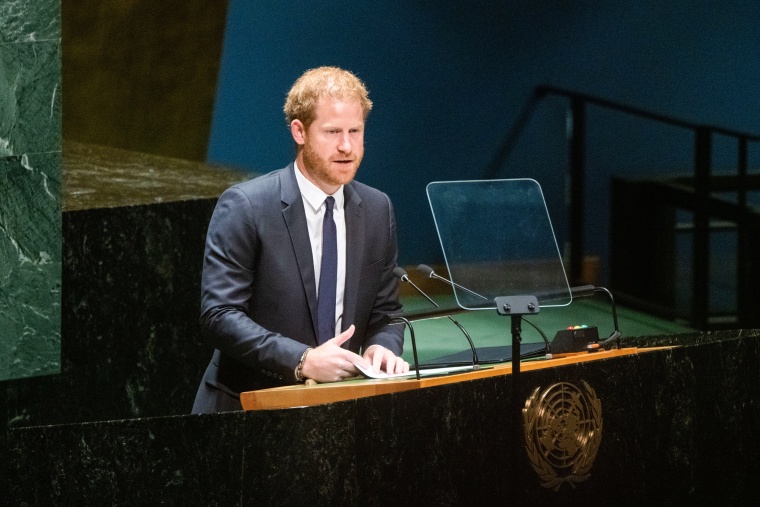The first Nelson Mandela International Day held at the United Nations General Assembly was in 2010. I get that this event happens annually and, 12 years in, the list of speaker options may have dwindled. But how the U.N. concluded that the best choice for the keynote address in 2022 was Prince Harry is head-scratching.
The royal family seems to have a distorted sense of reality in which they deserve to pat themselves on the back for their ability to rule in countries that didn’t need their guidance.
Of course, he does have quite the connection to the late civil rights and anti-apartheid leader. In his speech marking the occasion Monday, Harry recalled the meeting his mother, Princess Diana, held with Mandela in Cape Town in 1997, when he was 12, and noted that the photo of his mother and the South African president from that occasion hangs on his wall to this day.
Sarcasm aside, the inappropriateness of Harry’s selection as honored speaker doesn’t lie in his pseudo-connection, but the role the country he represents played in South Africa’s history. Harry on Monday referenced Mandela’s “vision of a freer, more peaceful world” — but the United Kingdom never afforded its colonies that vision.
Though South Africa was originally colonized by the Dutch in the 17th century, the British occupied the country in the 1790s and officially took it over in the early 1800s. After that, South Africa was under British rule for well over a century, fighting rebellions from both the Dutch-descended Afrikaners and the native Zulus. While the British were not in charge of the country's domestic affairs when the Afrikaner-dominated government established apartheid in 1948, the U.K. government’s passive stance on the issue allowed it to benefit from South Africa's resources (like gold).
While it’s debatable whether the royal family supported apartheid, former Prime Minister Margaret Thatcher (and thus the country’s elected government) strongly opposed sanctions on South Africa, which much of the world united behind in the 1980s and are believed to have been crucial to ending apartheid. It is widely known that Mandela’s work against apartheid is what landed him in prison for 27 years, so the idea that a British royal should fete him before the U.N. now smacks of obtuseness at best.
Want more articles like this? Follow THINK on Instagram to get updates on the week’s most important political analysis
This isn’t the first time in recent months that the British monarchy has shown how much it doesn’t understand the damage of its history. Prince William and his wife, Kate, faced ridicule and protests during their Caribbean tour this spring because of the U.K.’s role in slavery and the desire of people there to no longer be associated with the country.
Jamaica declared it would be seeking to break away from the British monarchy while the second in line to the British throne visited in March, and the couple's planned visit to the Commonwealth country of Belize was scrapped entirely due to demonstrations. The royal family seems to have a distorted sense of reality in which they deserve to pat themselves on the back for their ability to rule in countries that didn’t need their guidance.
When Harry spoke Monday, I believe his intentions were pure. Britain’s past doesn’t take away from his apparent attempts to model himself after his late mother, who was more relatable than other royals and dedicated herself to charity work, rather than his father, Prince Charles. Elsewhere, he’s spoken about his privilege, which his biracial wife has helped him appreciate, and how it’s cut him off from the suffering of others. However, allyship sometimes means stepping aside to let other voices be heard.
Even though Harry no longer has an official royal position, the perks still follow him, and he has access to any stage he desires to be on. The U.N. didn’t need to be his latest platform. Instead, it should prop up future Mandelas and give them the recognition that could one day effect global change in the way that the great South African leader did, and still does.
Related:
